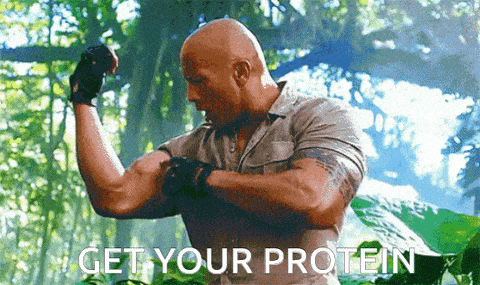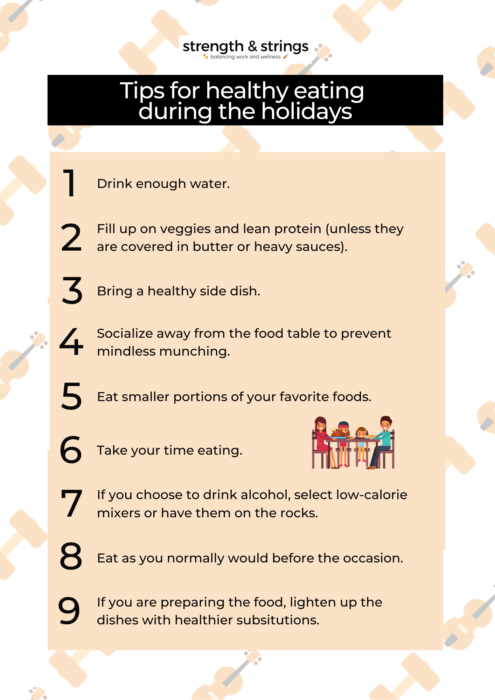
Proteins are vital nutrients that the body needs and provide a source of energy. They have the same energy density as carbohydrates and lipids, providing 9 kcal per gram. This provides you with more energy than what you can get from most other food sources. They are an essential part of a healthy diet. Continue reading to discover the many health benefits that include including more proteins in your diet.
Because they contain essential amino acids for growth and protein synthesis, dietary proteins are crucial to human health. They also have nitrogen, which is necessary for the body to make other protein. They also supply energy. The amino acids in dietary protein are readily metabolized for energy. In fact, each gram of protein provides 5.65 kcal, making them a valuable source of energy for the body. That's not bad, right?

Protein can be found in milk products, nuts, legumes and eggs, as well as meat and fish. Certain sources of protein have higher protein levels than others and they can be obtained from different sources. Other than meat, fish, dairy products and eggs, there are also grains, beans, seeds and edible insects that contain protein. To determine which protein source is best for your needs, balance both animal-based and plant protein sources.
There are many types of protein and recommended amounts for adults and infants alike. This is approximately 1.5 grams per kilogram of weight for children. They will be able to maintain their weight and blood sugar levels by eating high-quality proteins. It's crucial for women to include all three sources of protein in the diet. For men, it is better eat more fat or less sugar than the reverse.
Dietary proteins come from many different sources, including animal-based foods. They are important for our health, and should be consumed every day. They are essential for good health and are a vital part of a healthy lifestyle. For good health, a balanced diet is best. You can also include more protein if vegetarian. You'll get more energy and be more satisfied with your food if you have more protein.

Soybean, the most popular source of vegetable proteins, is number one. It was first introduced in China in 2838 B.C. Then, the soybean spread its popularity to several other countries, including the United States. Despite their love for soy protein, Americans consume very little of it due to cultural differences. A number of studies have also revealed that legume proteins are more nutritious than cereal protein.
FAQ
How can I reduce my blood pressure
Find out the causes of high blood pressure first. You must then take steps towards reducing the problem. This could mean eating less salt, losing some weight, taking medication, and so on.
Exercise is also important. If you don’t have enough time to exercise regularly, consider walking more often.
If you're not happy with how much exercise you're doing, then you should consider joining a gym. A gym that has other members who are motivated by your goals will be a good choice. It's much easier to follow a routine if someone is with you at the gym.
Do I need calories to count?
You may be wondering "what is the best diet for you?" or "is counting calories necessary?" Well, the answer depends on several factors including your current health status, your personal goals, your preferences, and your overall lifestyle.
The Best Diet For Me: Which One Is Right?
My current health, my personal goals and lifestyle will determine the best diet for me. There are many good and bad diets. Some work well for certain people while others don't. What should I do? How can I make the right choice?
These questions are addressed in this article. This article begins with a brief overview of the various types of diets that are available today. Next, we'll discuss the pros and cons for each type of diet. We'll then discuss how to choose which one is best for you.
Let's begin by briefly reviewing the different types and diets.
Diet Types
There are three main types of diets: low fat, high protein, and ketogenic. Let's look at each one briefly.
Low Fat Diets
A low-fat diet reduces the amount of fats you eat. This is achieved through reducing intakes of saturated fats (butter and cream cheese, for example). These fats can be replaced with unsaturated fats like avocados and olive oil. If you want to lose weight fast and easily, then a low fat diet is often recommended. However, this kind of diet may cause problems such as constipation, heartburn, and indigestion. It can also lead to vitamin deficiencies, if someone doesn't get enough vitamins in their food.
High Protein Diets
High protein diets discourage carbohydrates and encourage the use of proteins. These diets typically have more protein than other diets. These diets can help increase muscle mass and decrease calories. However, they might not provide enough nutrition for those who need to eat frequently. Also, they tend to be very restrictive, so they aren't suitable for everyone.
Ketogenic Diets
Ketogenic diets can also be known as keto diets. They are high-fat and low in carbs and protein. They are typically used by athletes and bodybuilders because they allow them to train harder and longer without getting tired. They do require strict compliance to avoid any side effects like fatigue, headaches, nausea, and headaches.
What does it take to make an antibiotic work?
Antibiotics are drugs which destroy harmful bacteria. Antibiotics can be used to treat bacterial infection. There are many types of antibiotics. Some are administered topically, while others can be taken orally.
People who have been exposed are often given antibiotics. To prevent shingles, an oral antibiotic may be prescribed to someone who has had chicken pox. For those with strep-thorphritis, an injection of penicillin could be administered to prevent them from getting pneumonia.
Doctors should prescribe antibiotics to children. Children are at greater risk than adults for developing serious side effects from taking antibiotics.
Diarrhea being the most common side effect of antibiotics. Other possible side effects include stomach cramps, nausea, vomiting, allergic reactions, headaches, dizziness, and rashes. These symptoms usually go away after treatment ends.
Exercise: Good and bad for immunity?
Exercise is good exercise for your immune system. Exercise boosts the production of white blood cells, which can fight off infections. Your body also gets rid of toxins. Exercise can help prevent heart disease and cancer. It also reduces stress levels.
However, overtraining can damage your immune system. When you exercise too hard, your muscles will become sore. This can cause inflammation as well as swelling. The body then needs to make more antibodies to fight infection. This can lead to allergic reactions and other autoimmune disorders.
So, don't overdo it!
What can you do to boost your immune system?
The human body consists of trillions of cells. These cells combine to form organs or tissues that serve specific functions. If one cell dies, a new cell takes its place. Cells communicate with one another using chemical signals called hormonal hormones. Hormones control all bodily functions, including growth, development, metabolism, immunity and immune system.
Hormones, chemicals that are secreted throughout the body by glands, are chemicals. They travel through the blood stream and act like messengers to control how our bodies function. Some hormones are produced internally while others are made outside of the body.
Hormone production begins when a hormone-producing gland releases its contents into the bloodstream. Once hormones have been released, they travel through the body until reaching their target organ. In some cases, hormones remain active only for a short period of time. Others hormones remain active longer and still have an influence on the body's functioning long after they leave bloodstream.
Some hormones are produced in large quantities. Some hormones are produced in large quantities.
Certain hormones can only be produced at specific times in life. For instance, estrogen is produced during puberty, pregnancy, menopause, and old age. Estrogen assists women with breast development, bone density, and osteoporosis prevention. Estrogen promotes hair growth, and skin stays soft and smooth.
Statistics
- According to the 2020 Dietary Guidelines for Americans, a balanced diet high in fruits and vegetables, lean protein, low-fat dairy and whole grains is needed for optimal energy. (mayoclinichealthsystem.org)
- This article received 11 testimonials and 86% of readers who voted found it helpful, earning it our reader-approved status. (wikihow.com)
- Extra virgin olive oil may benefit heart health, as people who consume it have a lower risk for dying from heart attacks and strokes according to some evidence (57Trusted Source (healthline.com)
- nutrients.[17]X Research sourceWhole grains to try include: 100% whole wheat pasta and bread, brown rice, whole grain oats, farro, millet, quinoa, and barley. (wikihow.com)
External Links
How To
27 Steps to achieve a healthy lifestyle when your family only buys junk food
The best way to eat healthily is to cook at your home. But, it can be hard to make healthy meals because many people don't know how. This article will help you make healthier choices while dining out.
-
Choose restaurants that offer healthy options.
-
Order salads and vegetables before ordering any meat dishes.
-
Ask for sauces with no added sugar.
-
Avoid fried items.
-
Instead of ordering fried meats, request grilled meats.
-
Order dessert only if you absolutely need it.
-
After dinner, make sure you have something to eat.
-
You should eat slowly and chew well.
-
Get plenty of water when you eat.
-
Do not skip breakfast, lunch or dinner.
-
Have fruit and veggies with every meal.
-
Use milk, not soda.
-
Try to stay away from sugary drinks.
-
Reduce the salt content of your diet.
-
Try to limit the number of times you go to fast food restaurants.
-
Ask someone to come along if you are unable to resist temptation.
-
Don't let your children watch too much TV.
-
When you are eating, keep the television off.
-
Do not drink energy drinks.
-
Regular breaks from work are important.
-
Get up early in the morning and exercise.
-
Move every day.
-
Start small and then build up slowly.
-
Set realistic goals.
-
Be patient.
-
You can exercise even when you don't feel like doing it.
-
Positive thinking is important.